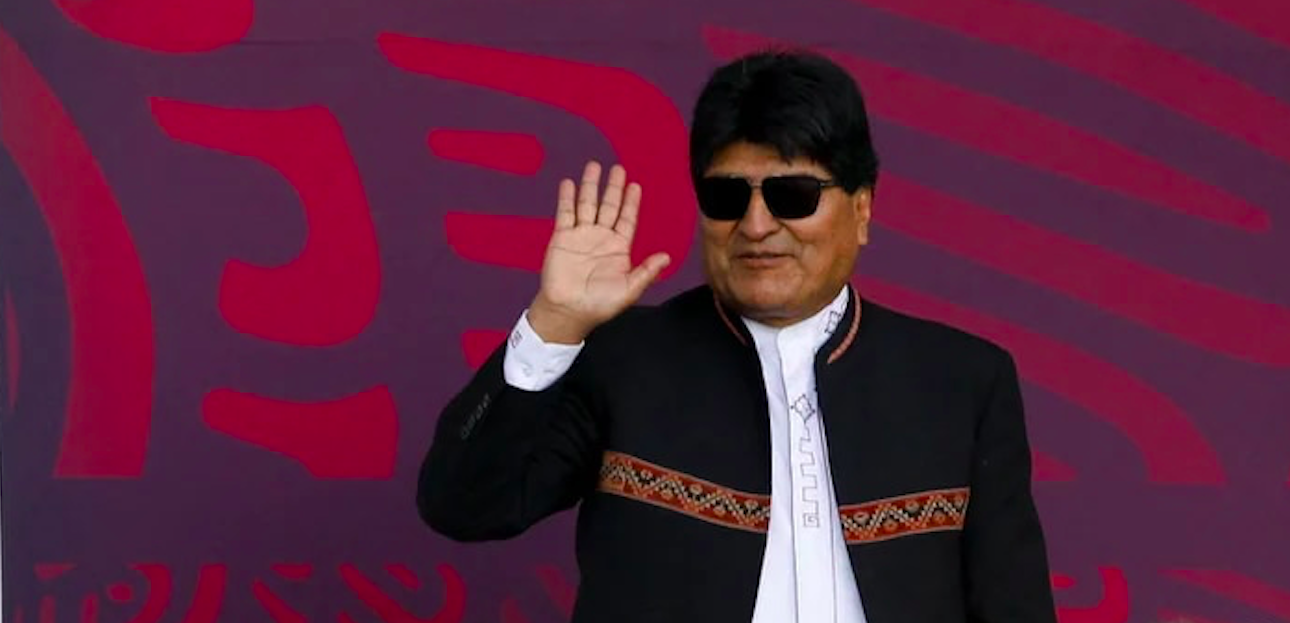The Peruvian government announced this Monday that it has banned the entry into its territory of former Bolivian president Evo Morales and eight other Bolivian citizens accused of having carried out “activities of a proselytizing political nature” that affected the country’s “national security”.
“In recent months, foreign citizens of Bolivian nationality have been identified as having entered the country to carry out activities of a proselytizing political nature, which constitutes a clear affectation of our immigration legislation, national security and internal order,” said the Peruvian Ministry of Foreign Affairs in a press release.
The official note emphasizes that Peru “is a sovereign and democratic country, whose immigration system establishes that all foreign citizens in the national territory have the duty to conduct themselves in accordance with the legal system, especially with regard to national security and internal order”.

“Consequently, on January 6 of this year, the National Migration Superintendence, in strict compliance with its powers (…) ordered the registration of the impediment to entry into the country, through all immigration checkpoints, of nine citizens Bolivians, including Juan Evo Morales Ayma”, says the text.
The Ministry reiterated to “citizens and the international community its deepest respect for human rights, as well as for historical ties” with other South American countries, with which it assured that it is making “important alliances aimed at achieving development, social peace and the well-being and security of our societies”.
MORALES REVIEWS
The decision of the Peruvian authorities was taken after the Peruvian president, Dina Boluarte, announced last week that she was analyzing together with the immigration authority “the situation of the entry of Morales” in the country, because she should not “intervene in the internal affairs”.
“In Peru we have the right to weave our own history, and nobody, people from outside the national territory, should come and want to intervene in the construction of our history”, she emphasized.
In November 2021, the congressional foreign affairs committee declared Morales persona non grata “for his negative political activism in Peru and for his obvious interference in the government agenda” of then-president Pedro Castillo (2021-2022).
Morales was also denounced last Thursday to the Peruvian Public Prosecutor’s Office by ultraconservative congressman Jorge Montoya for allegedly committing crimes against national security and treason, in the form of “attack on national integrity.”
MORALES’ POSITION
Evo Morales maintained an active presence in Peru, especially in the southern regions of the country, during the Castillo government, with the aim of encouraging the integration of regions such as Puno in the Runasur project, the international platform of social and indigenous movements that he is promoting.
The former governor has been very active on social media with opinions about the crisis in Peru and messages defending Castillo since he was ousted by Congress after an attempted self-coup on December 7.
Protests in Peru, which left 28 dead, began in December last year after Boluarte, until then deputy, took over the presidency with the departure of Castillo, who had tried to close Congress, intervene in the judiciary and govern by decree.
Last Thursday, after learning of the current Peruvian government’s criticism of him, the former Bolivian president said on Twitter that he “turns the other cheek” in the face of “political attacks by the Peruvian right” and made an appeal in favor of end “the massacres” in that country.
On Saturday, he defended his Runasur project and said “the only separatism in Peru is caused by racism, exclusion and discrimination by Lima’s power groups against its own people”.
With information from Gazeta do Povo

